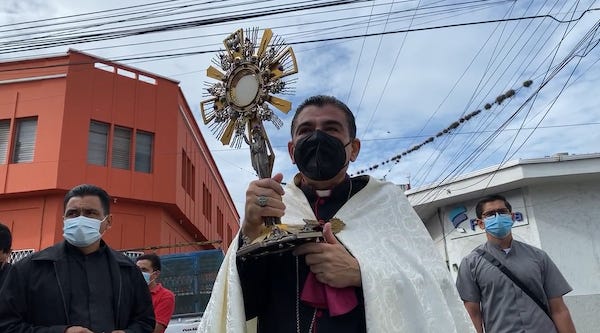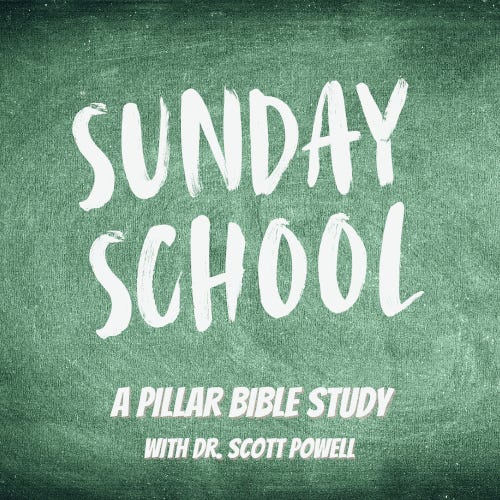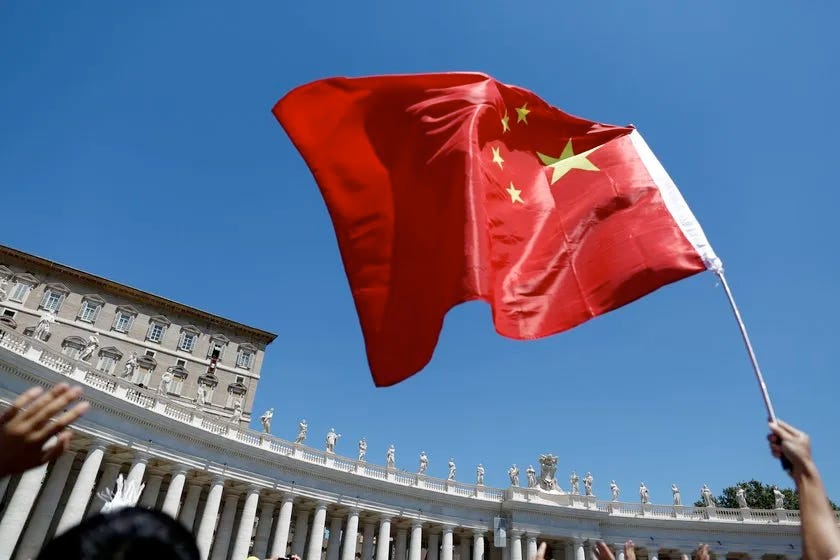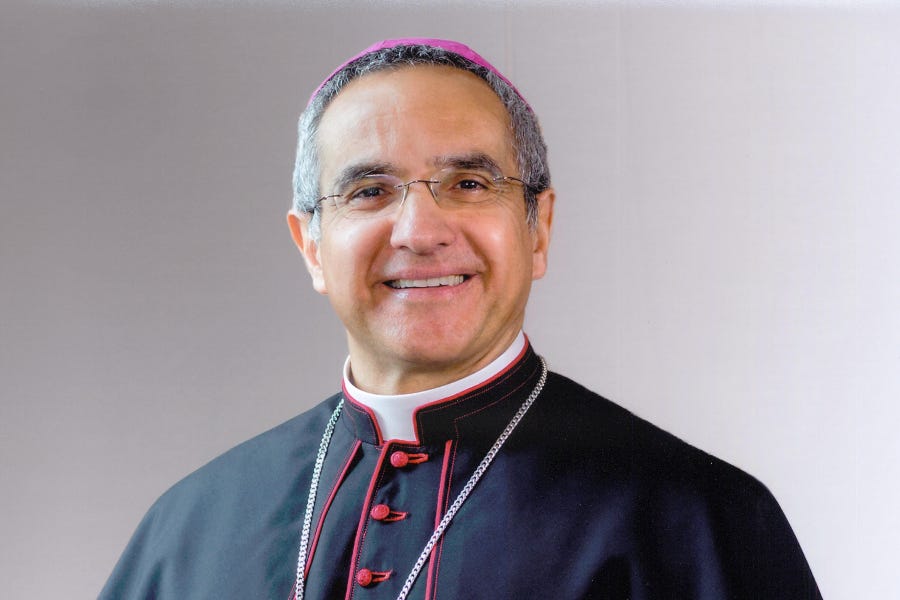Police on Thursday continue to surround a church in the Nicaraguan city of Sébaco, as its parish priest and five parishioners remain inside, as part of a siege that began Monday night.
The standoff began Monday evening, as Nicaraguan police attempted to seize radio broadcast equipment from a Catholic radio station shut down by the regime of President Daniel Ortega, which has in recent months escalated a crackdown on political critics in the country, including those within the Catholic Church.
In a standoff that continues Thursday morning, Father Uriel Vallejos and five parishioners remain inside one part of the parish rectory, while police have surrounded the building and partially occupied it.
With access to their kitchen cut off, the priest told The Pillar Wednesday that he and others inside the parish church have little food and no electricity.
As police forces began to surround the campus of Divine Mercy Parish in Sébaco Monday night, Vallejos tweeted a cry for help.
“Friends, come, I’m being sieged,” Vallejos tweeted Monday evening.
“The police are attacking the faithful who are inside the school,” he added.
The parish standoff in Sébaco began after an Aug. 1 government order announcing the closure of at least 12 media outlets, including 10 Catholic radio stations belonging to the Diocese of Matagalpa and one news channel.
The Catholic radio stations are regarded as opposition voices to the regime of Ortega, who has ruled Nicaragua since 2007, and was also the country’s leader from 1979 until 1990. The Ortega administration has been fiercely criticized for human rights violations, the suppression of opposition voices in the country, and for conducting allegedly sham elections to maintain power over the Central American country.
Beginning in 2018, Ortega’s regime has amplified its crackdown on opposition, shuttering dissident organizations and jailing critics, while drawing global criticism.
The Matagalpa diocese, owner of 10 shuttered radio stations, is led by Bishop Rolando Álvarez, a central figure in the Church’s opposition to the Ortega administration. In May, the regime abruptly closed the TV station of the country’s bishops’ conference, which was overseen by Álvarez.
The Aug 1. radio station closures were ordered by the Nicaraguan Institute of Telecommunications and Mail (Telcor), which is led by the daughter Nicaragua’s top-ranking national police official, who is a member of the Ortega family.
The official reasons given for the closures were varied.
Telcor said that RB 3, the sole TV channel closed, “did not have Telcor’s authorization to operate as a local TV channel.”
Radio Vos, the only non-Catholic radio station closed, has reported that a Telcor delegation notified the station that it was not in compliance with the country’s telecommunications laws, but gave few other details.
Bishop Álvarez said this week that Telcor told his network of Catholic radio stations that it did not have an up-to-date broadcast license. The bishop has insisted that the network’s licenses are in order, and has said publicly he is willing to prove that to telecommunications officials.
“If the director of Telcor, Nahima Diaz Flores, wants to receive me, I will take her the documents signed as received by Telcor on that day, all the documents I presented. If they are right, I will say myself publicly that they are right, that they can close our radios, but if they are wrong, they should be brave enough to admit their mistake or say that they just want to close our media,” the bishop said in a homily.
On Monday evening, a Telcor official entered Vallejos’ parish with a letter notifying the cancellation of the station, which Vallejos signed. But when the official attempted to seize the station’s broadcasting equipment, Vallejos refused.
A few minutes later, the police surrounded the parish, insisting that Vallejos surrender the radio equipment.
Word spread, and local Catholics arrived at the parish to protest the police action. Witness say that some protestors were assaulted by police forces.
According to witnesses, officers eventually broke a set of chains which locked the chapel’s door, and forced their way inside.
The chapel was occupied by armed officers, while Fr. Vallejos, along with some laypeople, hid in the rectory. Riot police also cut power within the church.
Police eventually cut holes in the radio studio’s roof to seize the radio equipment.
Witnesses and local media indicate that police did not show Vallejos a search warrant or seizure order during the raid.
The Matagalpa diocese initially live-streamed the raid on social media pages, until police reportedly cut power to the cameras transmitting the feed.
While the raid took place Monday evening, Vallejos and five parishioners remain inside the parish rectory’s living room, while police have continued to surround the building itself, and to occupy some buildings on the parish campus.
Vallejos spoke Wednesday night with The Pillar from his rectory, but the priest kept the conversation short, because he said his phone battery is dying, and he will be unable to charge it.
“I’m fine, but the siege continues,” the priest said Wednesday.
“They have us with bread and water and without electricity. We only have a bit of power with a battery,” he added.
The priest said he hopes Nicaragua’s human rights situation will gain attention among U.S. Catholics.
In an interview Tuesday, Vallejos said that riot police are in the parish chapel and have blocked access to the kitchen, so he and his parishioners did not have access to any food. But the group is unwilling to surrender to police, and remains within the parish rectory.
“The police are in the chapel and outside while blocking the kitchen. I am with five laypeople in the living room; we’re without food and did not have lunch or dinner yesterday,” Vallejos said Tuesday.
“Armed men are surrounding the church. In the beginning, they were 80 but now they are less. I hope there is light in this situation, I was peace and tranquility for us in this adversity,” he added.
The priest claimed that several of his parishioners were injured during protests, including a lector who lost an eye after he was shot with a rubber bullet. Others were tear-gassed during the protests, Vallejos said.
At least two young parishioners were detained during the assault and it is unclear if they have been released.
The police operation is led by controversial Ramón Avellán, the general commissioner of the Nicaraguan national police. Avellán was sanctioned by the U.S. government for his role in at least 107 killings amid the 2018-2019 protests in Nicaragua.
According to Vallejos, police have stolen or destroyed security cameras and sound systems from the parish school.
Vallejos is one of the Church’s most outspoken critics of Nicaraguan President Daniel Ortega. The priest has said he is monitored constantly by police and intelligence officers. In 2019, some school teachers at the parish were detained by the regime, and others, who received their salaries by the Ministry of Education, saw their pay suspended.
The Diocese of Matagalpa has repeatedly asked for prayers amid the standoff, and urged Catholics in the parish and the diocese to remain attentive to the situation.
A source close to the diocese told The Pillar that priests received instructions not to discuss the case publicly until Bishop Álvarez authorizes them to do so.
Local media have reported that the police are using drones to intimidate and monitor the parish complex, and to deter locals from attempting to approach the parish rectory with supplies for Vallejos and his parishioners.
In addition to the parish in Sébaco, police officers have in recent days closed the street leading to the diocesan chancery in Matagalpa, and some police officers have been present in the bishop’s residence.
Bishop Rolando Álvarez appeared Aug. 4 outside the chancery building carrying the Blessed Sacrament and conferring benediction upon people protesting in the street. Police have not permitted the bishop or other diocesan officials to enter into the diocesan curia building without apparent reason.

Álvarez announced Thursday a Holy Hour and a Mass in the diocesan cathedral, and has called for authorities to allow him and other chancery officials to enter the diocesan office building.



